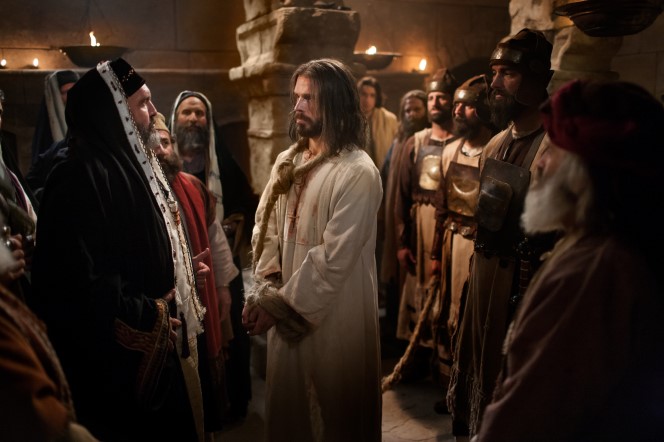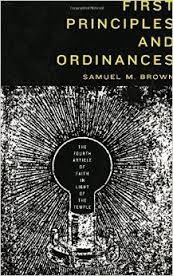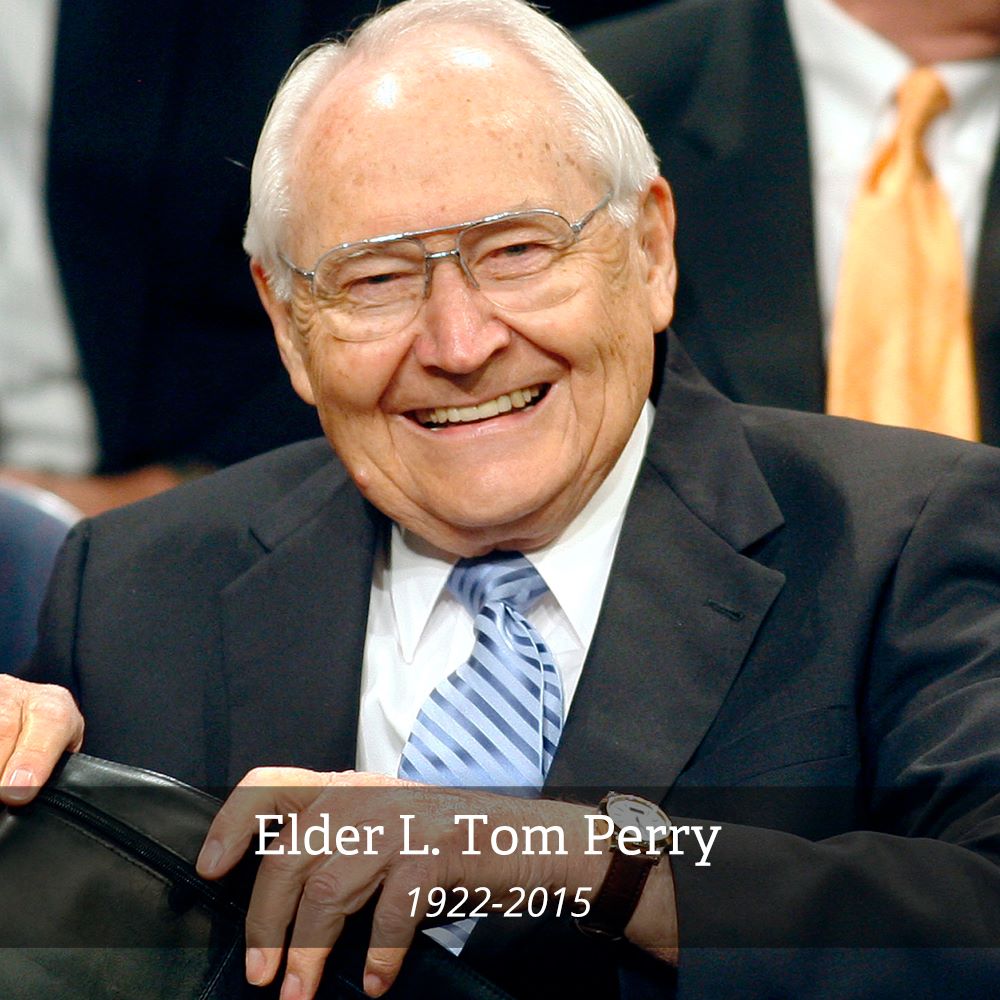-
•
•
21 responses

The supreme court has decided, so now in all of the USA same sex marriages are legal. With this landmark decision the USA has joined the many nations in the world where such a union has become official, and from the Netherlands, the first country where these marriages became official, we extend a warm welcome to America. Great that you joined the swelling crowd who thinks that LGTB should not be discriminated against, also not in marriage issues. You are becoming a ‘modern nation’ now (I hope you recognize a European ‘tongue-in-cheek’). In an earlier blog I explained how preciously… Read More
-
•
•
95 responses
The Mormon Newsroom has posted a letter from the First Presidency to area and local leaders. This is unusual: generally letters from the First Presidency are read to members over the pulpit in sacrament meeting, where you hear it once (if you’re lucky) but do not get access to the written text for study or review. And the first line of the letter makes it quite clear what prompted the letter: “Enclosed is a statement by the Council of the First Presidency and Quorum of the Twelve in response to the recent Supreme Court decision legalizing same-sex marriage in the… Read More
-
•
•
65 responses
I could have called this post “Same-sex marriage: The Belgian perspective,” but it includes more. “The perversity of orthodoxy” – that’s how one of the members in our Belgian ward identified the broader issues which triggered this post. He called me on Sunday afternoon, upset by a Sacrament meeting talk that same morning and in need to vent frustration. Perhaps “perversity” was too strong a word. Maybe “perfidy”? Probably too weighty a word, too. At least “the insensitivity of some who defend orthodoxy” or “the indelicacy of some church statements in the US in relation to the international church”? Difficult… Read More
-
•
•
11 responses
So here’s the plan: each week that the gospels are covered in Sunday School, I will post one question from my book along with a brief discussion of the issues that it raises. Most ancient manuscripts of Mark end after 16:8 and early Christians do not seem to know any of this chapter after verse 8. The style, vocabulary, and themes in Mark 16:9–20 are quite different from the rest of Mark. Therefore, the vast majority of scholars believe that the Gospel of Mark originally ended with verse 8 and that verses 9–20 are a later addition by another author. It… Read More
-
•
•
66 responses
Today our government has taken another step toward moral upheaval, or, if we think more optimistically, toward a crisis that will reshape it and its relationship toward the people it governs, potentially in a constructive manner. The government of the United States of America presents itself, in Lincoln’s immortal words, as a government of the people, by the people, and for the people. Its premise is that the legitimacy of government depends on the consent, and not merely the passive, but the active consent, participation, and support of the governed. Today’s Supreme Court ruling mandating same-sex marriage across the Union… Read More
-
•
•
14 responses

I wrote recently that there’s no reason why God, who spoke to ancient Israelites “in their weakness, after the manner of their language” could not adapt familiar myths so “that they might come to understanding” (D&C 1:24.) Here, I cite that prophet-with-a-small-p “Elder” C.S. Lewis, who argues that inspiration can include adaptation of uninspired sources. Read More
-
•
•
17 responses

(As with many of my posts, this is kind of trying things out, thinking them through in public and on the fly. It’s messy, so I welcome thoughts and substantive corrections.) In order to keep track of my research, I’ve been making a timeline of three kinds of events relevant to our understanding of Genesis: First, events in LDS history that impinge on the interpretation of Genesis, e.g. the 1911 BYU controversy or BH Roberts- Joseph Fielding Smith Debate (1930s). Second, events that lead to the recovery of ancient Near Eastern context of Genesis 1, such as the discovery/decipherment of Akkadian (Babylonian and… Read More
-
•
•
9 responses

In studying the last days of Jesus, like in lesson 26 of Gospel Doctrine, we habitually view the complicated chain of events that led to Jesus’ death from the viewpoint of the victim, with the dominant party furnishing the bad guys, the culprits of the story. Evidently, the Jewish authorities are prime suspects, but throughout Christian history one specific player has had a very bad press, Pontius Pilate. Most Christians have at least partly blamed him for the crucifixion, pointing either at his ruthlessness or at his presumed lack of spine, or even both. That, however, is the view from… Read More
-
•
•
So here’s the plan: each week that the gospels are covered in Sunday School, I will post one question from my book along with a brief discussion of the issues that it raises. As you read Mark 15, look for irony. Consider why so much in this chapter is ironic and what you should learn from it. (adapted from Search, Ponder, and Pray: A Guide to the Gospels) Read More
-
•
•
4 responses

I’m going to say some nice things about Sam Brown’s First Principles and Ordinances: The Fourth Article of Faith in Light of the Temple, published in 2014 by the Neal A. Maxwell Institute. But first some background. This short book (153 pages of text) is part of the Maxwell Institute’s Living Faith series, which also includes Adam Miller’s Letters to a Young Mormon. What I like about both books is that they take a relentlessly positive approach to the LDS doctrines and principles they discuss but avoid the oversimplified discussion that has become the norm for the LDS curriculum and… Read More
-
•
•
One response
“Christ & Antichrist: Reading Jacob 7″ The Second Annual Summer Seminar on Mormon Theology Conference Program Read More
-
•
•
22 responses
It’s a truism that lots of people read few books. And certainly as we get married, have jobs, kids, responsibilities, many of us find our leisure time is spent simply recovering from the day and picking cheerios out of the carpet. Moreover, lots of people who DO read just don’t have interest in history, doctrine, or scripture and choose to read other things. But then, you have recently returned missionaries. Read More
-
•
•
18 responses

This morning I am thrilled to share a guest post written by my amazing mother, Christie Frandsen. Christie is a gifted teacher, leader and speaker, and has taught early morning seminary, Institute, and adult scripture classes for many years in Southern California. She has also been involved in Girl Scouting for decades in many significant leadership capacities. She is the mother of eleven children and grandmother of eighteen. It’s 4:25 in the morning. I wake up with a start, instinctively look at the clock and see that I have 5 more minutes of blessed sleep before the alarm rings. I turn it off… Read More
-
•
•
So here’s the plan: each week that the gospels are covered in Sunday School, I will post one question from my book along with a brief discussion of the issues that it raises. Why was a story as embarrassing as Peter’s betrayal included in the scriptures? Consider D & C 1:24–28. (adapted from Search, Ponder, and Pray: A Guide to the Gospels) Read More
-
•
•
52 responses
“The prophet will never lead the Church astray.” — Ezra Taft Benson, 1981. Discuss. Read More
-
•
•
9 responses
Merina Smith’s Revelation, Resistance, and Mormon Polygamy: The Introduction and Implementation of the Principle, 1830-1853 (USU Press, 2013) does a very nice job summarizing scholarship on the LDS practice of polygamy during Joseph Smith’s lifetime and for the decade following his death. The focus of the narrative (which is based on the author’s recent PhD dissertation) is on the development of a theological narrative to support and justify the early practice of LDS polygamy. The author makes the point that a convincing theological narrative or justification was a necessary prerequisite for the acceptance and practice of polygamy by Joseph’s associates… Read More
-
•
•
So here’s the plan: each week that the gospels are covered in Sunday School, I will post one question from my book along with a brief discussion of the issues that it raises. Scholar Fernando Segovia lists seven different scholarly approaches to John 14-17: (1) Historicizing: the discourse is completely accurate, therefore chapter 15 occurs in a different location (because of 14:31). (2) Transpositional: sometime during transmission, the chapters were rearranged. (3) Redactional: there is a second speech (chapters 15–16) which is a different version of the first speech (chapter 14). (4) Symbolic: 14:31 is understood symbolically. (5) Unfinished: the text… Read More
-
•
•
2 responses
“Christ & Antichrist: Reading Jacob 7” The Second Annual Summer Seminar on Mormon Theology Conference is free and open to the public Saturday, June 20, 9am-5pm The Refectory Union Theological Seminary 3041 Broadway New York, NY 10027 Read More
-
•
•
82 responses
In preparing people to face a skeptical world, we should not confuse inoculation with the administration of poison by degrees. Read More
-
•
•
One response
So here’s the plan: each week that the gospels are covered in Sunday School, I will post one question from my book along with a brief discussion of the issues that it raises. Some scholars conclude that women were present at the Last Supper. They cite the following evidence: (1) Compare Mark 14:28 with Mark 16:7. (2) Referring to “one of the twelve” in Mark 14:20 means that there were others present (see also Mark 14:16 and 17). (3) The tradition for Passover was for women to be present and it would have been worthy of mention if Jesus were… Read More
-
•
•
13 responses

The church announced that Elder Perry died today. Read More
-
•
•
17 responses
Lamanite: An increasingly dated term that now rubs many people the wrong way when heard in public Mormon discourse. But the category lingers on despite LDS attempts to move toward a post-racial approach to priesthood and salvation. Lamanites, Nephites, children of Lehi, Indians, Native Americans, Amerindians — whichever term you choose, it’s clear the doctrinal category is still with us. There is still a racial component to the Mormon view of past, present, and future history. Let’s explore this a bit. Read More
-
•
•
9 responses

One of the defining characteristics of the Gospel of Luke is that it contains gender pairs, meaning that the same story or event happens twice–once to a man and once to a woman. Read More
-
•
•
So here’s the plan: each week that the gospels are covered in Sunday School, I will post one question from my book along with a brief discussion of the issues that it raises. In what ways is a wedding celebration a good metaphor for the coming of the kingdom (see Matthew 25:1-13)? (adapted from Search, Ponder, and Pray: A Guide to the Gospels) Read More
-
•
•
10 responses
This post comes from Mom S. Over the last six years, we’ve had many conversations about the relevant books she was reading, questions that arose, and teaching ideas. I asked her to share some thoughts on this class and its effects. Some time ago, I was asked to teach an adult scripture class in our ward. It was originally an extra activity for the Relief Society sisters but was expanded by the bishop to include any brothers who wanted to attend. I picked the Book of Mormon for the curriculum having learned from personal experience (16 years early morning seminary… Read More
-
•
•
63 responses
Oftentimes, we’re presented with what appears to be a package deal: If you accept A, you accept B-G as well. If you reject A, you reject B-G as well. Just as often, however, what appears as a package can and should be unpacked, critically and carefully examined to see if it really is so. In 1911 Provo, a controversy erupted over some teachers at BYU. Horace Cummings, the education commissioner, was sent down to investigate and make a report. Telling the entire story is beyond the length and attention span of the average blog, so I’ll just link to it here though… Read More
-
•
•
5 responses
-
•
•
7 responses
Whether you are a student of the scriptures who reads 3-4 versions of the Bible simultaneously (at least one of which is in Hebrew or Greek) or you are so lackadaisical that scripture “study” means learning where the book of Romans is (hint: New Testament), you will want to read Adam Miller’s insightful, thought-provoking and beautifully written “paraphrase” of Romans, Grace Is Not God’s Backup Plan. Read More
-
•
•
2 responses

At 7pm on Thursday, May 21, Writ & Vision will host a roundtable discussion on grace. Participants include Adam Miller, Joseph Spencer, and Jenny Webb. The discussion will focus on President Uchtdorf’s April 2015 General Conference address, “The Gift of Grace,” Adam Miller’s Grace Is Not God’s Backup Plan: An Urgent Paraphrase of Paul’s Letter to the Romans, and a close reading of 2 Nephi 25:23 (“for we know that it is by grace that we are saved, after all we can do”). The event is open to the public. Writ & Vision is located at 274 West Center Street in Provo, Utah. Read More
-
•
•
2 responses
